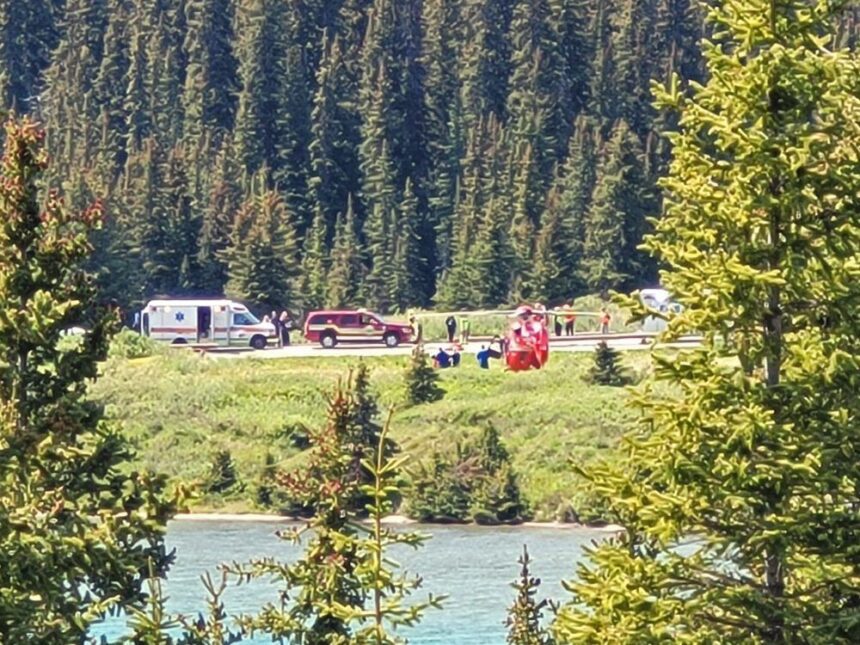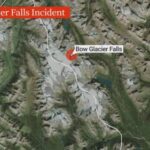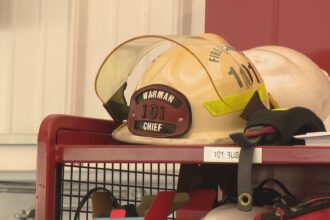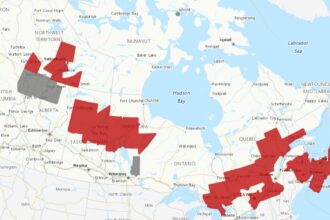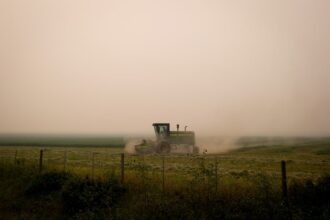A massive rockslide crashed down near Bow Glacier Falls in Banff National Park yesterday afternoon, sending three hikers to hospital with injuries and triggering an emergency response that showcased both the dangers and preparedness of Canada’s mountain wilderness.
“It sounded like thunder, but the sky was clear,” said witness Megan Chen, who was photographing the glacier when rocks began tumbling down the mountainside around 2:30 p.m. “People were screaming and running. Those closest to the falls had nowhere to go.”
Parks Canada officials confirmed that the rockslide occurred on one of the park’s most popular summer hiking trails, which typically sees hundreds of visitors daily during peak season. Emergency crews responded within 30 minutes, aided by two helicopter units that assisted in evacuating the injured hikers.
The most seriously hurt visitor suffered a fractured leg and head lacerations, while two others sustained minor injuries. All three were transported to Banff Mineral Springs Hospital for treatment.
“These events, while relatively rare, are a natural part of mountain ecosystems,” explained Banff National Park Superintendent James Morrison. “Spring thaw combined with recent rainfall likely contributed to this particular rockslide. We’re grateful the injuries weren’t more severe.”
The incident has prompted park officials to close the Bow Glacier Falls trail temporarily as geologists assess the stability of the surrounding slopes. This marks the third significant rockslide in the Canadian Rockies this season, following similar incidents in Jasper and Yoho National Parks, though neither resulted in injuries.
Climate researchers at the University of Calgary note that warming temperatures may be increasing rockslide frequency throughout the mountain ranges. “We’re seeing more freeze-thaw cycles that destabilize slopes,” said Dr. Anita Sharma, a geohazard specialist studying alpine environments. “What used to be predictable seasonal patterns are becoming more erratic.”
For veteran hikers like Edmonton resident Thomas Wilson, who witnessed the slide, the incident serves as a sobering reminder of nature’s power. “I’ve been coming to these mountains for twenty years, and you always need to stay alert,” Wilson said. “The beauty here comes with real risks.”
Parks Canada is reminding visitors to check trail conditions before setting out, heed all closures and warnings, and carry emergency communication devices when venturing into backcountry areas. Updates on the Bow Glacier Falls trail reopening will be posted on the Parks Canada website as assessments continue.
As summer visitation peaks across Canada’s mountain parks, this incident highlights the delicate balance between promoting access to natural wonders and ensuring public safety in environments where nature remains wonderfully, and sometimes dangerously, wild.

